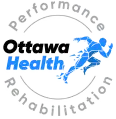Private medical clinics have become a hot topic—not just in Ottawa, but across Ontario. With an estimated 15% of Ottawa residents lacking a family doctor, many are left navigating a system that’s stretched too thin.
When family doctors are overbooked, care can become rushed and impersonal. We sometimes forget that doctors are people too. Like anyone, they face stress, fatigue, and the emotional toll of not being able to give patients the time and attention they deserve.
Many of us entered healthcare because we care deeply about people. But in an overburdened system, even the most dedicated professionals can burn out—and that affects everyone.
Private medical clinics aren’t a replacement for the public system—they’re a support system. By offering accessible, timely care, they help relieve the pressure on family doctors and give patients the peace of mind that comes from knowing help is there when they need it.
If you’re still in need of medical care, there are several options available to explore—each with its own benefits and limitations to consider.
Option 1: ohip-funded assigned family doctor
Ontario’s public healthcare system is built around family doctors, specialists, and hospital services—all covered under OHIP. In theory, this should ensure comprehensive care for everyone.
The challenge?
More and more people can’t access it when they need it. Waitlists are long. Appointments are short. And it’s estimated that over 150,000 people in Ottawa alone don’t have a family doctor.
Considerations:
Excellent for long-term, complex care when access is available
Hard to secure a new family doctor
Long wait times for non-urgent needs
Continuity of care is ideal—if you’re one of the lucky ones with access
option 2: Walk-In Clinics
Walk-in clinics can be helpful when you’re sick and need quick, one-time care for minor issues like a cold, UTI, or some prescription renewals. No appointment necessary.
The challenge?
Access can be unpredictable. You may face long waits, see a different doctor each time, or find the clinic closed. The big problem is that people often treat walk-in clinics as “their family doctor”. These practitioners are upwards of 100 patients per day in some cases. There is very little rapport and relationship building when you treat a walk-in clinic as your primary healthcare provider. It is also likely that you see different Doctors each time, depending on the clinic.
Considerations:
- Useful for urgent but non-emergency issues
- Limited follow-up or continuity
- May involve long waits depending on the day
- Less suited for chronic conditions or complex care
Option 3: virtual Platforms
Telemedicine apps like Maple, Rocket Doctor, and Tia Health offer online video consultations, often within hours. These services are ideal for some prescriptions, lap requisitons, or quick advice.
The challenge?
They can’t provide physical exams, and users often see a different doctor everytime. These virtual platforms are not intended to be holistic personalized care, these are transactional- not personal.
Considerations:
- Convenient for low-complexity issues
- Great after-hours or when travelling
- No physical exam limits what they can do
- Not ideal for those who want relationship-based care
Option 4: Hospitals and emergency rooms
Hospitals and ERs are essential for true medical emergencies—chest pain, severe injury, difficulty breathing, or anything life-threatening. But unfortunately, many people end up in the ER for non-urgent issues simply because they have nowhere else to turn.
The challenge?
Using emergency rooms for minor concerns contributes to longer wait times, staff burnout, and delays for those who genuinely need urgent care.
Considerations:
- Meant for emergencies
- Non-urgent visits strain the system
- Long waits for minor concerns
- Not personalized not should it be intended for chronic management
Option 5: private medical clinics
Private medical clinics, like Ottawa Health Private Medical Program, offer timely, personalized, and comprehensize care, often through a membership model. They help bridge the gap between the overburdened public system and the patient’s need for consistent access, quick diagnostics, and prevention-focused care.
The benefit?
These clinics offer same-day appointments, longer visits, and better continuity of care. For those without a family doctor, or tired of long waits, it’s a practical alternative.
Considerations:
- May require a monthly or annual membership
- Not covered by OHIP (could be reimbursable through private insurance)
- Ideal for those wanting fast access, ongoing care, and a consistent provider
- Helps reduce pressure on the public system
Final Thoughts
Whether you’re waiting for a family doctor, tired of walk-in clinic lineups, or seeking more proactive care, private medical clinics offer a valuable alternative. They don’t replace the public system—they support it—while giving you greater control over your health, time, and peace of mind.
At Ottawa Health: Performance and Rehabilitation, we offer timely, comprehensive care for non-emergency medical concerns—often with same-day appointments and no long waits. If you’re looking for reliable, accessible care without the stress of the ER, our private membership program may be the right fit.




